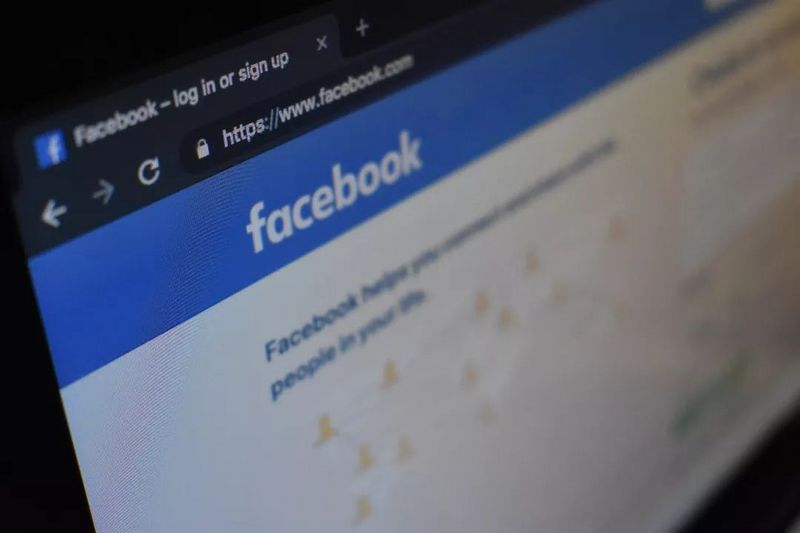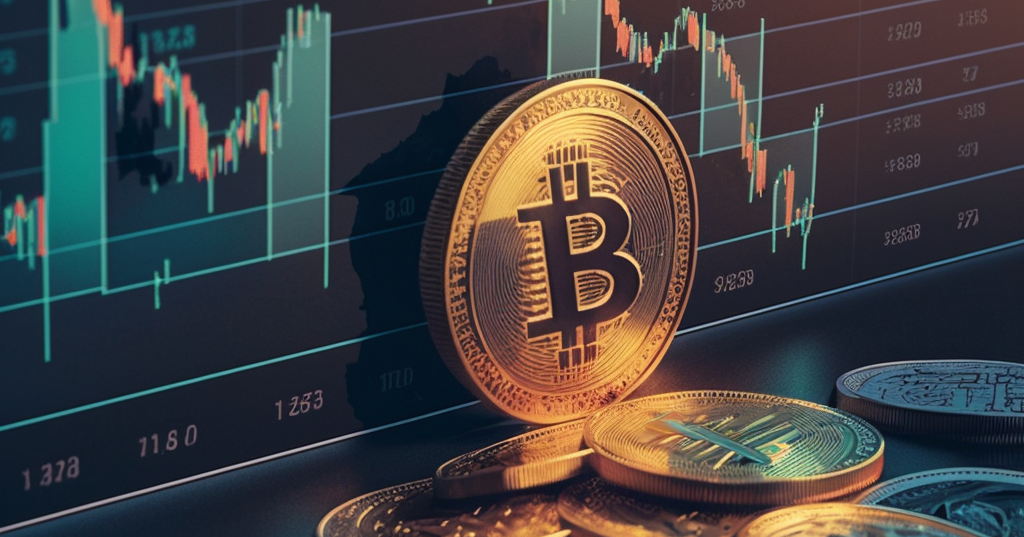Facebook did not start Libra, but launched a currency war

On the ninth day after Facebook released the Libra white paper, Libra is still struggling in the regulatory mud and can't get out.
Since the launch of the white paper in June, Libra has not received positive support from any country. On the contrary, the attitude of central banks to Libra is on the verge of an enemy, and they have joined forces to start a collective boycott.
Libra, which is expected to be launched in the second half of 2020, is now struggling to bridge the regulatory divide. Libra didn't seem to realize that the cheese he had moved, but it had aroused the vigilance of the people involved.
- Explore: Bitcoin and Nash's ideal currency
- The successful landing of the digital renminbi needs to solve three difficulties
- BTC sees more emotions falling back and returning to the shock pattern
On this side, Libra is struggling to face the most stringent supervision in history. On the other hand, under the pressure of Libra, central banks have suddenly realized that the legal digital currency has been put on the agenda.
Under the new competitive environment, everyone wants to participate in the competition of the next Bretton Woods system.
Libra promotes twists and turns, and countries regulate the cofferdam
Libra is being confronted by national regulators.
Since its launch in June of this year, Libra's road to progress has been bumpy. After three months, people could hardly feel any advancement of Libra, and Libra and regulators became the biggest point of view.
For Libra, receiving a subpoena from the regulatory authorities became a common occurrence.
A year ago, the performance of Facebook’s head, Xiaozha, at the privacy door hearing was still fresh. Today, Libra's project leader, Marcus, has to go to Gaotang in suits and suits, and fights with hundreds of members at large and small hearings.
According to statistics, after the launch of the Libra white paper, the US Congress held three consecutive hearings in half a month. However, Libra still has not exchanged trust from the United States under the efforts of many parties.
US President Trump still does not recognize Libra's status, bluntly speaking, in the United States, only the US dollar is a real currency; and said "Facebook Libra will not have any status or reliability, if Facebook and other companies want to become a bank, They must apply for a banking license."
On September 16, Libra held talks with 26 central banks including the Federal Reserve in Switzerland. This has once again triggered industry attention.
During the talks, Libra was asked to answer key questions about the scope and design of the currency, and also discussed with the central bank officials the policy and regulatory risks brought by the stable currency supported by financial institutions and technology companies. A report will be submitted to the G7 Finance Minister in October.
Before the meeting, the high-profile attitude of Germany and France should prevent Libra from launching.
German Finance Minister Olaf Scholz bluntly cannot accept parallel currencies like Libra. French Finance Minister Bruno Lemer believes that Libra threatens the monetary sovereignty of governments.
Subsequently, the German cabinet formally approved the draft blockchain strategy, supporting the securities tokenization but against the Libra stable currency. Not only that, the attitude of Libra's registered Switzerland has quietly changed.
At first, Libra wanted to seek a license in Switzerland, and Switzerland also expressed its willingness to actively promote that Switzerland can play a role in an ambitious international project. But with the pressure from the US Treasury and other European countries, Switzerland has also recently expressed its readiness to work with other countries to ensure Libra regulation.
If the countries were still a little embarrassed about Libra, Libra can still survive in the cracks, and now the attitude of national supervision can be said to be co-operating with Libra.
At the same time, in order to gain the recognition of national supervision, Libra continues to attract high-paying lobbyists. According to statistics, as of August this year, Facebook has spent more than $7.5 million on lobbying in Washington and has hired more than 12 external lobbying companies.
The reason for this emphasis on dialogue with regulation is that Libra clearly understands that Libra is likely to be “in the dead” if it is not regulated.
Libra is not allowed to be issued, and countries must issue their own currency.
Many people use Libra to compare with Bitcoin, which is considered to be a new thing to transform the global financial infrastructure.
But Bitcoin has never been as closely watched and inspected by many national regulators in such a short period of time as Libra.
In Libra's white paper, more is written about Libra's application in cross-border payment and transfer. Therefore, some people regard Libra as an overseas payment method for WeChat and Alipay.
Of course, some people have analyzed that Libra wants to become a super-sovereign currency. If this currency is circulated globally, and the billions of users behind Facebook, it will undoubtedly have an impact on the sovereign currency of small countries with unstable monetary policy. But it will increase the new demand for a basket of currencies that are linked behind it.
According to this logic, each of the United States, Britain and Europe has a strong global appeal. It is expected that Libra will not encounter major regulatory obstacles in countries such as the United States, Britain and Europe.
But this time, first of all, stand up and openly oppose it. It is not an island country far away from Oceania, nor a small country with a fragile sovereign currency system in Southeast Asia. On the contrary, it is the development of France and Germany that have always been stable in the euro system. However, financial analyst Cathie Wood believes that France and Germany are considered normal considering the decline in European banking stocks.
Interestingly, while resisting Libra, countries are arguing for the release of Libra's competing products.
According to reports in July, the European Central Bank (ECB: European Central Bank) is studying the issue of the euro digital currency ECB-Coin. The market is also speculating that the EU may launch its own digital currency. On September 13, French Finance Minister Lemaire called for the EU to consider introducing its own “public digital currency” plan.
In August, Bank of England Governor Mark Carney also urged global central banks to join forces to create a Libra-like “synthetic hegemonic currency (SHC)” to end the dollar’s dominance, reduce potential risks and weaken dollar spillovers. .
Currently, Uruguay has launched the CBDC (Central Bank Digital Currency) pilot project. In addition, Palestine, Saudi Arabia and the United Arab Emirates are also exploring the use of CBDC in their legal currency systems.
This time, China has not been left behind. As early as Zhou Xiaochuan took office, China formed a small team to study the central bank's digital currency. On July 8, Wang Xin, director of the Central Bank Research Bureau, revealed that the State Council has officially approved the research and development of the central bank's digital currency. Currently, the central bank is organizing market institutions to engage in corresponding work. On August 10, Mu Changchun re-disclosed the central bank's digital currency at the Yichun meeting: "The Chinese central bank's digital currency can be said to be ready."
In addition to central banks, there are also a lot of companies that want to send money. From Wal-Mart to Wells Fargo, Facebook's currency is booming, and corporate currency is also everywhere.
Of course, there are still unsatisfactory currency players. Libra, the big brother of the three major exchanges in the currency circle, has created a one-stop version of the Libra “Star”. Recently, its officially defined the Venus Stabilization Coin project as a competitor of Facebook's cryptocurrency Libra.
Obviously, Libra is pushing for central banks and companies to make moves.
Behind the encounter, it is actually a brand new currency war.
“No digital currency like Libra can cause tensions in the entire currency and financial world.” Even Mu Changchun, director of the Central Digital Money Institute, lamented that the tension around Libra in the world is not a worry, there is Its real reason and background – Libra is valuable, which means it has the potential to become a currency in the usual sense.
Why are governments so nervous?
The words of German Finance Minister Olaf Scholz point out the considerations of the powerful countries to suppress Libra: "We must protect consumers and national sovereignty. The core element of national sovereignty is the issuance of currency, we will not leave this task to the private sector. ""
The emergence of Libra has given countries a sense of crisis for sovereign currency for the first time, and the industry has been speculating on Libra's true intentions.
Ren Zeping, director of Evergrande Economic Research Institute, mentioned in his article Libra: The Principles, Impacts, Opportunities and Challenges of Digital Currency: The important reasons why sovereign states are cautious about Libra: First, Libra or some of the national sovereign currency Second, the difficulty of foreign exchange control in various countries has increased greatly; third, it is more difficult to implement monetary policy in various countries; fourth, it is more difficult to increase anti-money laundering and counter-terrorism.
He believes that the key factor is the concern of countries on monetary sovereignty.
The Global Times article "China cannot be absent from the era of global digital currency competition" also believes that after Facebook issued the digital currency Libra, "there is a coin-making right to issue currency for 2.7 billion people worldwide, becoming an independent 'central bank' in the digital economy. ".
"Monetary policy is a vassal of fiscal policy. The coin-making power brings about the government's fiscal power, loses the coin-making power, and the finance can't control the market." Digital currency analyst Hong Yining analyzed the Odaily Planet Daily.
Even if Marcus repeatedly promised the central bank that he did not intend to create money, he was not doing bank work. But no one can say clearly, Libra will not be the same as the US dollar that year, ushered in the day of decoupling gold.
In response, a new currency competition horn has been blown.
Blockchain technology and application Early researcher Gu Yanxi believes that the emergence of the Libra project has forced central banks in various countries to seriously consider their own currency digitization policies and adopt corresponding countermeasures to grasp the trend of currency and asset digitization.
"If a central bank continues to maintain its existing monetary and financial system, and other central banks even work together to take corresponding measures, then the central bank will certainly fall behind in the process of digitizing this currency and assets and become a global An isolated island in the financial industry.” Gu Yanxi believes that in order to avoid this situation, each central bank will take this challenge seriously, and cooperate with other central banks to formulate corresponding countermeasures.
Cai Weide, a special expert of the National “Thousand Talents Program” and a professor at Beijing University of Aeronautics and Astronautics, believes that in the past, currency competition was the benefit of countries through the issue of currency, usually depreciating the legal currency to stimulate exports and gaining interest from the exchange rate, but this is the old currency competition. The new currency competition can also enter the market of other countries with stable currency, and can control trading information in a timely manner.
For central banks, Facebook's currency is not only a challenge, but also an inspiration – it is the best time to end the dollar's central position since 1944.
"It is not another metal that beats gold as the world's universal currency better than gold, but paper money. The dollar that beats the dollar may not be the next banknote, but the digital currency." Digital currency analyst Xiao Lei believes that the future trend Just on the digital currency.
Zhou Xiaochuan, former president of the central bank, also commented: "The concept of Libra represents a more globally strong currency."
Inspired by Libra, many countries have embarked on the road of developing digital currency. Everyone wants to seize this opportunity to create a new Bretton Woods system.
The global new currency war that has been forced out by giant companies has quietly begun.
Text: Yu Nan
Source: Odaily Planet Daily (ID: o-daily)
Original article, author: Xin Nan. Violation of the law will be investigated.
We will continue to update Blocking; if you have any questions or suggestions, please contact us!
Was this article helpful?
93 out of 132 found this helpful
Related articles
- Market analysis: more patience in the trend, BTC is nearing change
- I heard that as long as this technology matures, the centralized trading platform will disappear.
- State-owned enterprises enter! Blockchain application progress has exceeded 50 during the year
- Viewpoint | The boundaries between primary market and secondary market are slowly becoming blurred
- Market Analysis: Market sentiment still needs to be stable, BTC and mainstream currency enter the pending stage
- Singapore Banking Corporation OCBC Bank joins JP Morgan Chase Blockchain Network
- Take bitcoin to pay? How much do you want to open?






